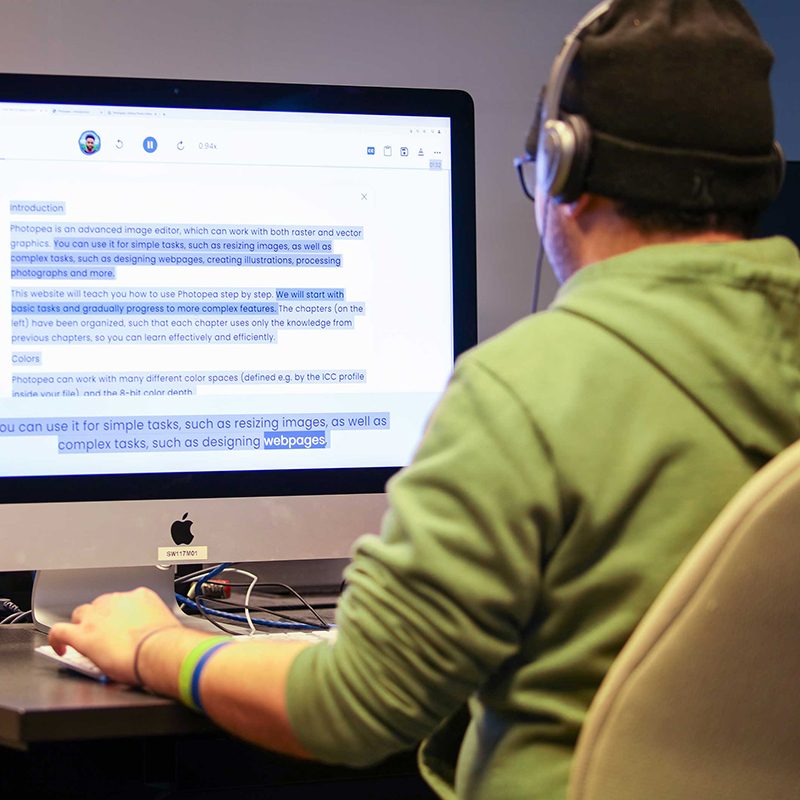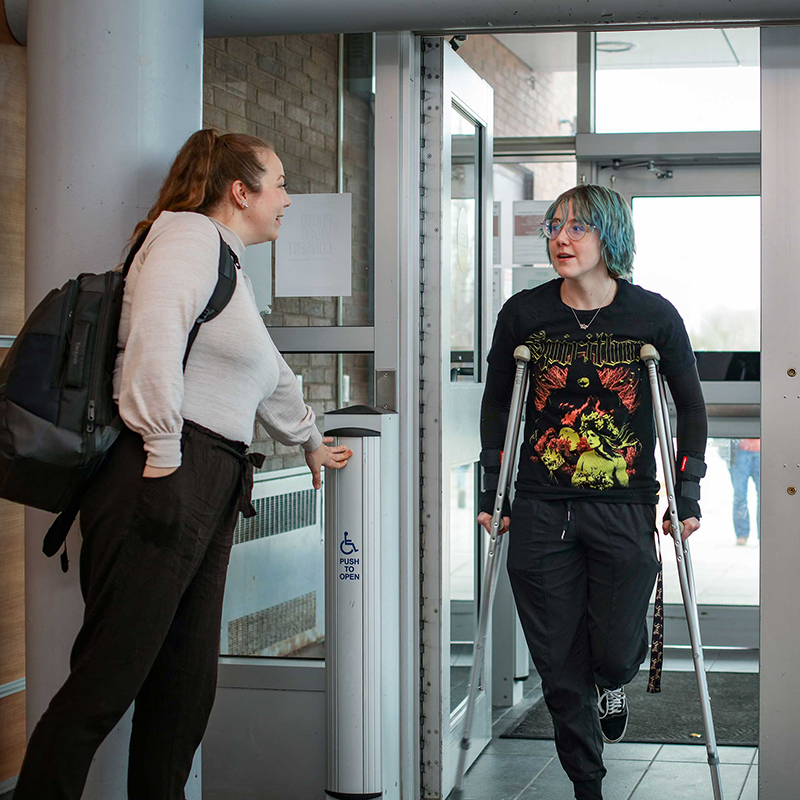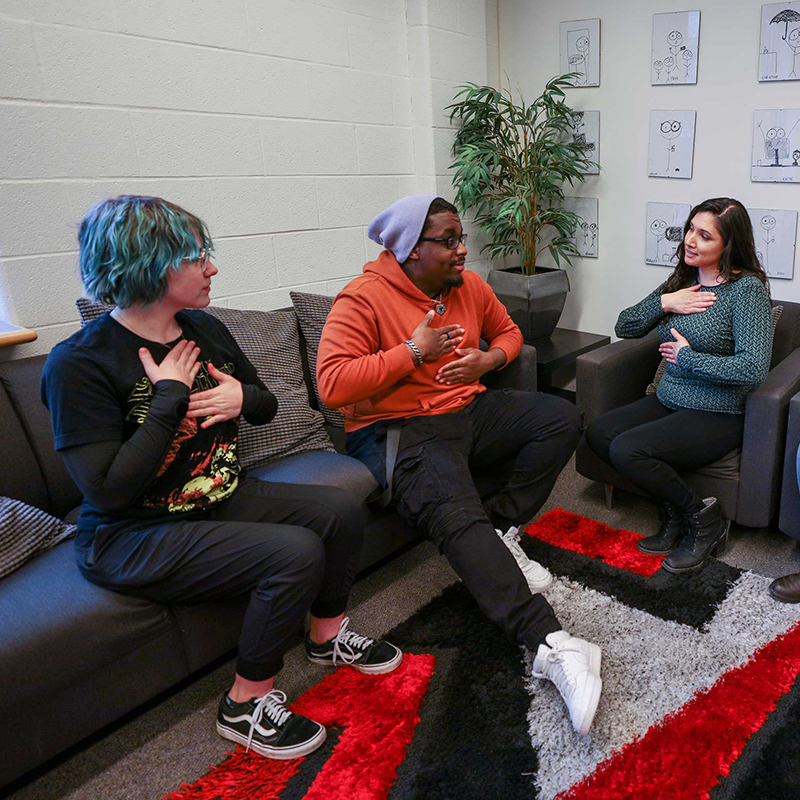Kristen Gainforth answers the call for those in need
Graduate Spotlight: Kristen Gainforth
Kristen Gainforth was ready for her career long before she crossed the stage at Durham College’s (DC) Spring Convocation.
In fact, she had to bow out of DC’s 9-1-1 Emergency and Call Centre Communications program a little early, but she had a good reason for doing so. She was busy working!
Last fall, while completing her second year of studies, she applied for a job as a 9-1-1 dispatcher with the Kawartha Lakes Police Service. The native of Pontypool knew it was a long shot, but the job was close to home and she had nothing to lose.
“It was a shot in the dark, and I took it,” she said.
That began a long process of interviews, tests, background checks and psychological evaluations, all while keeping on top of her school work. Her tireless efforts paid off in March when she got the job, becoming the youngest person ever employed by the City of Kawartha Lakes.
Her DC professors played a key role in her success by providing references for her during the hiring process and then accommodating her new schedule once she was hired. She was allowed to complete her exams early, which enabled her to take on her new role while earning her diploma.
Her remarkable achievement came as no surprise to Melissa Taaffe, a professor in the Faculty of Social and Community Services (SCS).
“Kristen has been a wonderful student and has a great skill set for 9-1-1 communications. She has astute attention to detail and excellent memory recall, and she is a methodical and logical problem-solver. These characteristics will serve her well in a dispatch career,” said Taaffe. “I’m sure that Kawartha Police will find her to be a true asset.”
She made a similar impression on Amanda Cannon, program coordinator and professor in the Faculty of SCS.
“A huge strength of Kristen’s is her ability to take on a challenge, which is definitely the kind of person who excels in this career,” she said. “I admire the way she approaches each situation and uses her problem-solving skills.”
The support of her professors was invaluable to Kristen, as was their prior experience in 9-1-1 dispatch. They gave the students a real understanding of what a career in emergency services is like.
“Without my professors and their real-life experience, I don’t think I’d understand the job as much,” said Gainforth.
It’s not a job for the faint of heart. Nobody ever calls 9-1-1 because everything is fine, and dispatchers go through a mental and emotional wringer each day as they speak to people who are experiencing traumatic events. The program prepared Kristen and her classmates for that by playing recordings of real emergency calls and enacting some for practice, but it’s no comparison to dealing with real people who are in real danger.
“When it’s a real person, you can’t just hang up and start over. You’re going to get people who are freaking out and not listening to you,” she said. When that happens, she recalls the advice of her professors: slow them down and remember who is in control of the conversation.
When she hangs up the phone, she takes a deep breath and moves on, ready for the next call. It’s the same at the end of the day when she has to remind herself not to bring work home with her. Luckily, DC’s 9-1-1 program includes courses on lifestyle management, resilience and self-care, and mental health. Those lessons help her deal with each emotionally charged call as it comes.
Having graduated on the President’s Honour Roll, she is gaining experience every day in a career she loves.
“It’s a good feeling because you know you’re helping somebody. It’s nice to know I’m a part of that.”




